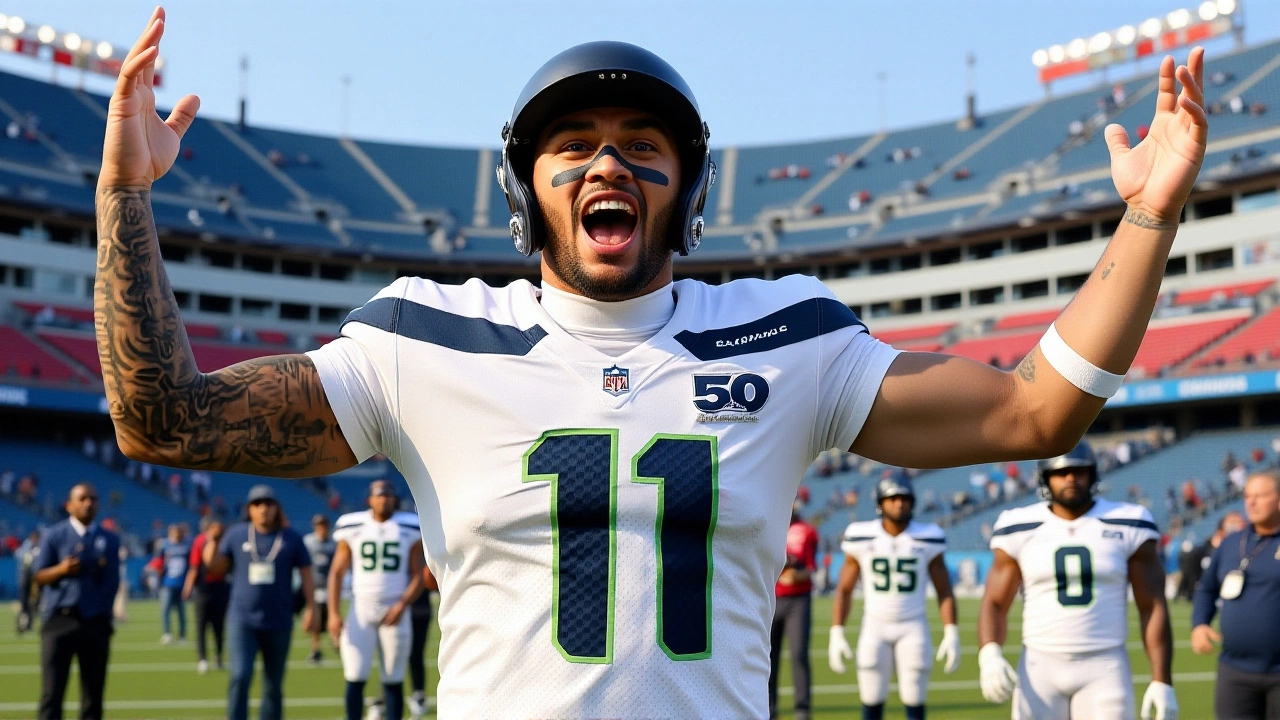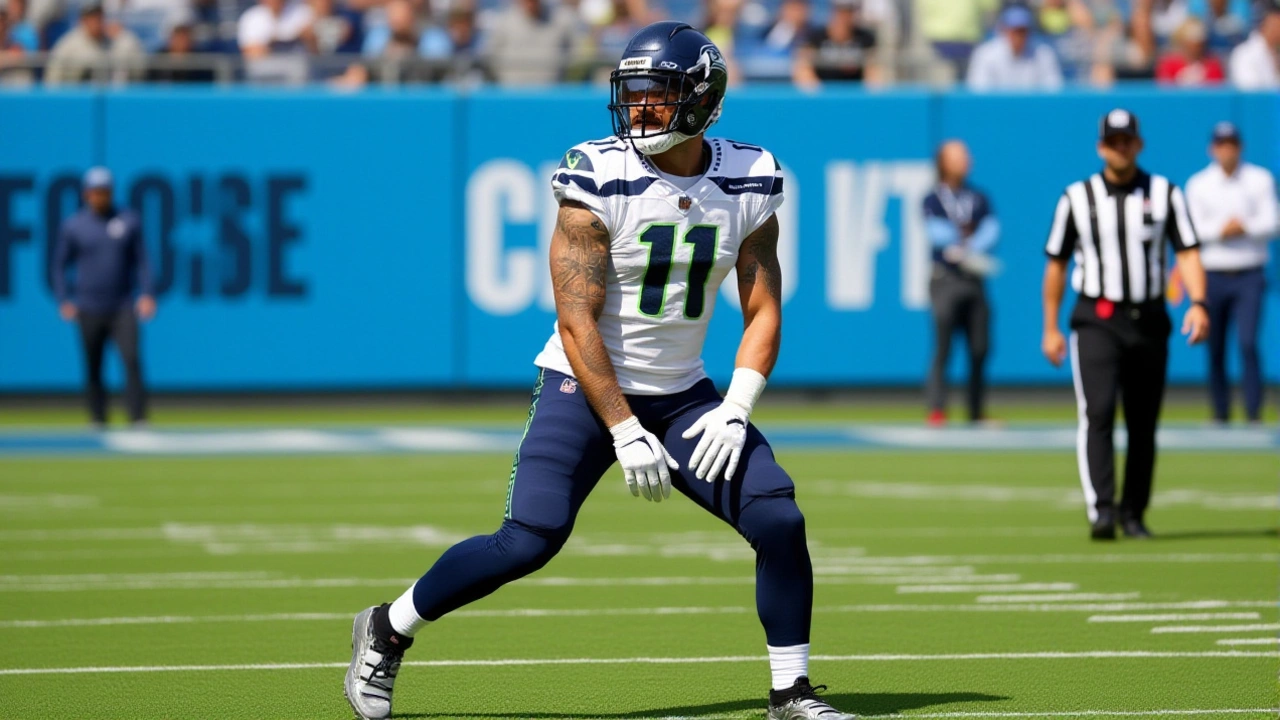When Sam Darnold dropped back on third-and-8 in the second quarter, he didn’t look like the quarterback who’d thrown four interceptions the week before. He fired a laser—63 yards through the air—to Jaxon Smith-Njigba, who caught it in stride at the Tennessee 10 and dove into the end zone. That play, on Week 12 of the 2025 NFL season at Nissan Stadium in Nashville, didn’t just flip the script—it rewrote it. The Seattle Seahawks went on to beat the Tennessee Titans 30-24, improving to 8-3 on the season and locking up the first wild-card spot in the NFC with seven games left.
A Quarterback’s Redemption
Just seven days earlier, Darnold had been the story of failure. Four picks. A 27-17 loss to the Rams. Fans were calling for a change. But here, on a chilly Sunday in Tennessee, he was calm, precise, and unflappable. He finished with 244 passing yards, two touchdowns, and zero interceptions—his cleanest game since Week 4. The turnaround wasn’t luck. It was preparation. According to Seahawks offensive coordinator Brian Schottenheimer, Darnold spent Monday through Wednesday reviewing every snap from the Rams game, identifying tendencies, and reworking his footwork. "He didn’t just fix his mechanics," one assistant coach told reporters. "He fixed his mind."
His connection with Smith-Njigba was electric. After the 63-yard bomb, Darnold found him again early in the third quarter—13 yards, same corner route, same result. Smith-Njigba now has 11 touchdown receptions this season, tied for the NFL lead among wideouts.
The Titans’ Grit, and Their Limits
Don’t sleep on the Titans. They were down 30-3 and still fought. Rookie quarterback Cam Ward, the league’s most-sacked passer, showed why he’s the future. He threw for 256 yards, scrambled for a 12-yard touchdown late in the third, and capped it all with a 1-yard TD pass to Chimere Dike with 43 seconds left. Dike, the NFL’s leader in all-purpose yards, had already electrified the crowd with a 90-yard punt return for a touchdown earlier in the third quarter—his second of the season. He’s the only player in the league with two punt return TDs since Week 1.
Yet, for all their fight, the Titans remain the NFL’s worst-scoring team. Their 24 points were a season high. Their average? Just 17.8 per game. They entered the game averaging 2.8 touchdowns per contest. On Sunday, they scored three—but two came after Seattle had already pulled away. The offense had no answer for Seattle’s aggressive front, which racked up four sacks, including one by Derick Hall that forced a turnover on downs with under seven minutes left.
Special Teams and the Final Play
The game’s turning point wasn’t a pass or a run—it was a kick. After Seattle’s Jason Myers nailed his third field goal of the day to push the lead to 16-3, the Titans finally forced a punt. Dike took the ball at his own 10 and sprinted through a gaping hole in the coverage. The stadium erupted. The Titans were alive.
But Seattle’s defense held. And when Ward connected with Dike for the final TD, bringing the score to 30-24, Tennessee went for the onside kick. The plan? A miracle. The reality? Dorian Mausi, Seattle’s linebacker, was waiting. He touched the ball at the 8-yard line—before it traveled the required 10 yards. Game over. The Seahawks recovered. The crowd fell silent.

Coach Macdonald’s Message: Resilience Over Perfection
Afterward, Mike Macdonald, head coach of the Seahawks, didn’t celebrate the blowout. He praised the Titans’ grit. "They played extremely hard," he said, pausing mid-sentence as if still processing the chaos. "Their quarterback extended plays. Our guys were fighting on every snap. We didn’t close it out early. But we closed it out. And that’s what championship teams do."
Macdonald also highlighted the team’s road dominance. With this win, Seattle improved to 5-1 away from Lumen Field—the best road record in the NFC. They’re one of just four teams in the NFL with four or fewer road losses. "Traveling across time zones, playing in hostile environments, that’s not easy," Macdonald added. "These guys showed maturity."
The Seahawks now sit one game ahead of the New Orleans Saints for the final NFC playoff spot. Their next test? A home game against the San Francisco 49ers on December 1. A win there could clinch a top-six seed. A loss? It opens the door for the Eagles, Panthers, and even the 6-5 Lions.
What This Means for the NFC Playoff Picture
Seattle’s win didn’t just improve their record—it changed the entire landscape. With the 49ers and Cowboys both losing this weekend, the Seahawks are now the clear favorite to host a wild-card game in January. Their offense, once criticized for inconsistency, has scored 27+ points in five of their last six games. Darnold’s 10-1 TD-to-INT ratio over that stretch is the best in the league among qualifying QBs.
Meanwhile, the Titans’ season is slipping away. At 4-7, they’re officially out of contention. But Ward’s emergence gives them hope for next year. His 256 yards and two touchdowns on Sunday? They were the most by a Titans rookie since Marcus Mariota in 2015. If Dike keeps returning punts like this, Tennessee might not be dead in 2026.
Frequently Asked Questions
How did Sam Darnold bounce back after four interceptions last week?
Darnold spent three full days reviewing game film with offensive coordinator Brian Schottenheimer, focusing on footwork, timing, and decision-making under pressure. He eliminated his habit of forcing throws into tight windows and trusted his receivers more. The result: 244 yards, two TDs, zero picks—his best performance since Week 4.
Why is Chimere Dike so dangerous on punt returns?
Dike leads the NFL in all-purpose yards (1,482) and has two punt return touchdowns this season, both over 90 yards. His vision and acceleration allow him to find lanes even when blockers are down. He’s averaging 21.3 yards per return—second-best in the league—and has become the Titans’ most explosive weapon.
What does this win mean for Seattle’s playoff chances?
The Seahawks now hold the first NFC wild-card spot with an 8-3 record and a tiebreaker edge over New Orleans. They’re one of only four teams in the NFL with four or fewer road losses, and their 5-1 road record gives them a major advantage in tiebreakers. A win against San Francisco next week could secure a top-six seed and home-field advantage in the first round.
How did Seattle’s defense contain Cam Ward?
Despite Ward’s mobility and ability to extend plays, Seattle’s defensive line applied consistent pressure, recording four sacks and forcing three third-down stops in the second half. Linebacker Derick Hall’s sack on third-and-goal with 6:11 left forced a turnover on downs, effectively ending Tennessee’s last serious scoring threat.
Why did Jason Myers settle for field goals instead of touchdowns?
Darnold himself admitted frustration after the game, saying, "We were able to move the ball up and down the field, and we've just got to finish when we're in the red zone." Seattle had four red zone possessions in the first half and only scored two touchdowns. Three ended in Myers field goals—still valuable, but not optimal. Red zone efficiency remains a key area for improvement.
What’s next for the Titans?
At 4-7, Tennessee is officially eliminated from playoff contention. But Cam Ward’s growth and Chimere Dike’s explosiveness offer hope for 2026. The Titans’ offense, once the league’s least productive, now has two dynamic playmakers. Their final five games are against teams with losing records—this could be a springboard for rebuilding.
